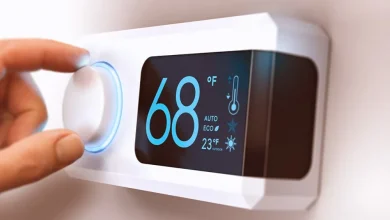How pet owners should maintain their HVAC Ottawa System

Pets are such wonderful companions, but like any family member, their presence does imply regular chores, especially keeping the home clean. As much as clients in Ottawa should be concerned with the different systems in their homes, they should be with the HVAC Ottawa system. Any live, fur-bearing animal in a home will affect indoor air quality and HVAC systems whether they are shed or not. Maintenance of this system is crucial to keep your home comfortably tempered besides helping in allergens and other factors aggravated by pets.
Ottawa climate control is offering its customers several services including Ottawa furnace installation, Ottawa furnace repair, and Ottawa furnace maintenance. In this article, we will explain why pet owners should pay particular attention to their HVAC systems and give some recommendations on how to do that.
What is the Impact of Pets on your HVAC System
Herein, below, are some of the changes that come with pet ownership when it comes to HVAC: Some pets, like cats or dogs, shed their fur, dander, or even leave pet odors, they distort the quality of the air you breathe in your home and can cause more load on your HVAC system. For this reason you need heating & cooling services in Ottawa by Ottawa climate control.
Here’s how:
- Air Quality:Domestic animals also bring different allergens within the house, affecting the indoor environment. It’s becoming clear that pet dander is an allergen, and when it gathers in the air and the ducts, ittends to worsen asthma, allergies, and respiratory illnesses.
- Clogged Filters: Pet fur and dander also cause air filters to become full more quickly in a home with pets than in a home without pets. Whenever filters are dirty and inefficient, the system has to exert a lot of effort to push air around, ultimately leading to more energy consumption.
- Pet Odors: Dogs and especially cats commonly give off smells that are not quickly dissipated within the environment. Ventilating systems, specificallyHVAC systems, can circulate these smells around your home if they are not well maintained.
- Increased Wear and Tear:The cleaning and filter changes needed to accommodate pet-related particles can add wear to your HVAC system. If poorly maintained, your HVAC unit will have a short life span or may develop other operational problems.
Essential Ottawa Air Conditioning Maintenance Tips for Pet Owners
People in Ottawa use their HVAC systems all year round because winters are severe, and summers are hot with considerable humidity. To ensure these systems continue to run efficiently, here are essential maintenance tips:
1. Change your air filters regularly
Pet hair, dander, and dust deposits build up and choke the filters, affecting airflow. Blocked filters are also counterproductive as they exert pressure on the systems, leading to higher energy wastage and system damage.
While selecting an air filter, use a high-efficiency particulate air (HEPA) filter or a filter recommended for pet dander trapping. These filters are more effective in eradicating minute particles and raising the quality of air indoors.
2. Regularly Clean and Vacuum Ductwork
Your air ducts contain pet hairs, dander, and dust, particularly in your heating and cooling system. Over time, this leads to the accumulation of dust, which causes blockage, consumes more energy, and reduces air quality. An appointment with a professional air duct cleaner should be arranged annually to remove such accumulations and keep your heating and cooling system at optimal efficiency.
Secondly, pet owners should vacuum often. This should be done on seats within the house, especially those frequently used by pets. Washing them regularly will minimize the chances of fur and dander finding their way into air ducts in the first place. Ottawa Air Conditioning Maintenance will help you keep up with the cleaning of the ducts.
3. Invest in a High-Quality Purifier.
Some cleaners can be connected to the HVAC Ottawa system to allow continuous air cleansing in different rooms of your house. This can be good for clients with several pets or for those who have allergic disorders or asthma attacks.
4. Regularly inspect your HVAC System
Pet owners should also clean the HVAC filters, also called heating, ventilation, air conditioning filters, and ducts, and have their HVAC system periodically checked and cleaned by a professional technician. Technicians can check for issues such as:
Clogged evaporator or condenser coils collect pet hair, which can block the system and, hence, compromise its efficiency.
Leaky ducts: In the worst-case scenario, weakened or broken ducts can bring pet hair and dander into other parts of your house that are not properly purged.
Overheating system: Replacing the filters or cleaning the ducts regularly will help you avoid a breakdown because the HVAC system will overheat.
In this way, it can be prevented when it is still small, all you need to do is not to spend a lot of money on other options instead try Ottawa Air Conditioning Repair to solve the HVAC problems.
5. Seal Gaps and Cracks Around your Home
Fur and dander can pass through voids in windows, doors, and walls. A proper Ottawa air conditioning installation will close these holes and can stop dirt from getting into your Heating and AC system, thereby enhancing heating and cooling efficiency. To protect your home and family from outside air, use weather strips and door sweeps, and apply sealant over all the windows.
Also, your HVAC system’s air intake should be sealed and located appropriately where pets do not often visit. This will help to keep your system from drawing more dust and pet hair into your home all the time.
6. Clean Up the Pet Living Space
Besides ensuring the HVAC system is clean, another thing that is equally crucial for your pets is ensuring the living space is also clean. Daily brushing of your pets, especially those breeds that shed often, will go a long way into reducing the statistic of hair and dander in the house. Occasionally washing your pets and combing their fur will also help reduce the amount of fur you find on your car.
Cats, especially those that shed a lot, can benefit from a lint roller or pet grooming tools. Your pet’s cleanliness will decrease the amount that you have to work your HVAC system, and in turn, your indoor air quality will be much better.
7. Keep Pers away from the HVAC Vents
Of all household animals, cats and small dogs are the most curious. They can reach out for the air vents and may try to crawl into them. This can restrict air flow, lower system efficiency, and, over time, damage the HVAC systems’ components. Keep your vents locked or blocked so your pets cannot access or reach them
If your pets often lie close to or on air vents, you should realign furniture or place covers over the vent to prevent them from damaging the HVAC system.
8. Use a Smart Thermostat for Better Control
Pet owners may primarily understand the product as they observe that the pets tend to regulate the temperature inside the home during various seasons. Ottawa heat pumps are relatively easy to program and control compared to others, as it learns your family’s patterns. It enables you to program operations for heating and cooling to meet comfort needs while being careful not to overwork your system, even with furry friends shifting around the house.
Most smart thermostats are also fitted with air sensors that notify you when you need to clean your filters or perform other servicing.
Conclusion
Proper care and management are needed for any HVAC system if you own a pet in Ottawa. Make sure you get proper Ottawa furnace installation to keep the temperature normal. Follow proper cleaning techniques, inspections, and precautionary measures helps to retain good indoor air quality and the efficiency of the heaters and coolers being used. HVAC system maintenance is crucial if you and your pets are to live comfortably and healthily in your home.

Source: How pet owners should maintain their HVAC Ottawa System




